
How to Eat Like a Hot Chick
¥84.16
Chocolate cake for breakfast and a pound of spinach for dinnerLooking and feeling your best has never been so easy, so guiltless or so much fun!Let's be honest, ladies, are you tired of hearing about the eating habits of airbrushed celebritiesDo you want to feel sexy as you slide into your favorite jeans, but you're too confused by the complicated diet plans out thereWell, here is the antidote to all of that nonsense!With saucy wit and goodwill to spare, Lipper and Vincent reveal their tricks for how you can overcome any food obstacle, from which cocktails will keep you light on your feet past midnight to how you can stay on track when you're down in the dumps (or if you just got dumped). They'll teach you how to eat the foods you love with confidence, make smarter choices, and wake up your inner Hot Chick once and for all.It's time to end the vicious dieting cycle with this straightforward and hilarious guide to enjoying your food, embracing your body and celebrating yourself like only a true Hot Chick can.

Angels Among Us
¥48.39
Gale was a strong swimmer -- but halfway across the lake she realized she couldn't make it to the other side ...Annabel and her three-year-old daughter turned suddenly -- and saw a car hurtling straight toward them ...Ken fell and his hunting rifle accidentally went off -- leaving him wounded, bleeding and alone in the frozen woods...and then they appeared! Angels do exist -- as illustrated in these moving,compelling and true contemporary accounts of ordinary people whose lives were touched and saved by the extraordinary.
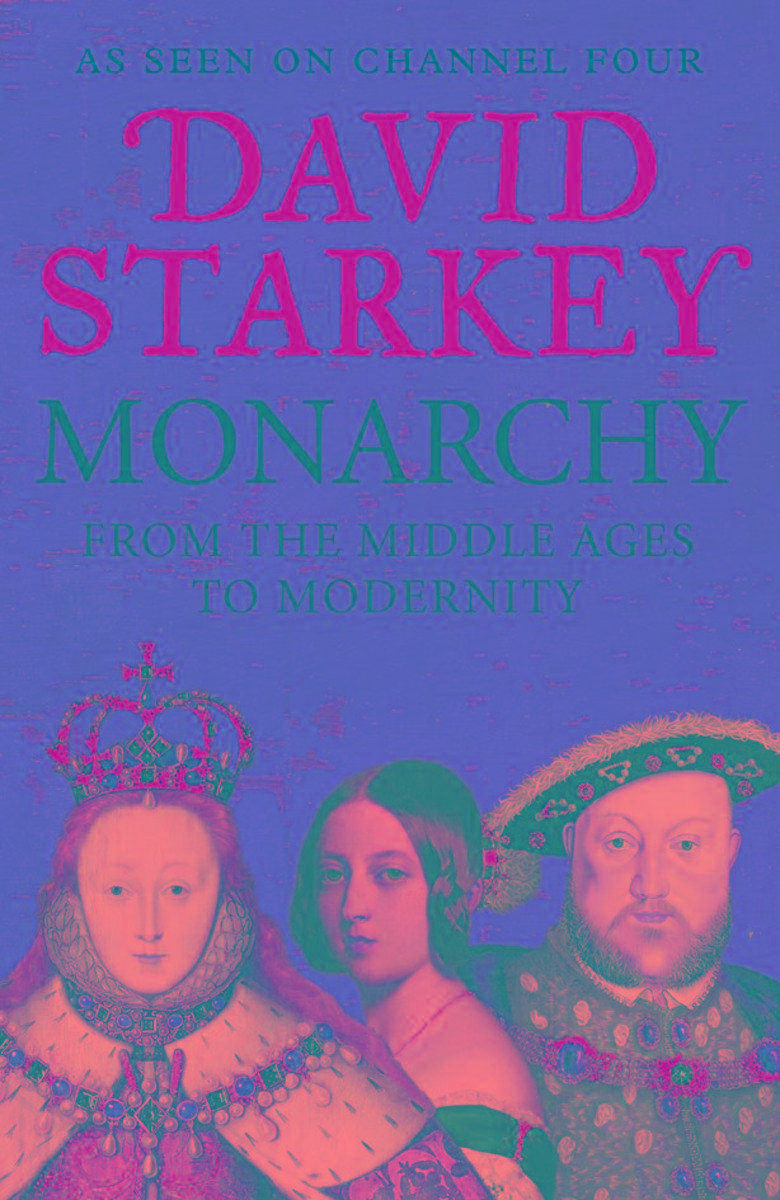
Monarchy: From the Middle Ages to Modernity
¥68.67
To coincide with the Channel 4 series to be aired at the end of this year – David Starkey's ‘Monarchy’ charts the rise of the British monarchy from the War of the Roses, the English Civil War and the Georgians, right up until the present day monarchs of the 20th Century. David Starkey’s magisterial new book Monarchy charts the rise of the British crown from the insurgency of the War of the Roses, through the glory and dangers of the Tudors, to the insolvency of the Stuarts and chaos of the English Civil War, the execution of Charles I, the rule of a commoner who was ‘king in all but name’, the importing of a German dynasty, and the coming-to-terms with modernity under the wise guidance of another German, Victoria’s Prince Consort Albert. An epilogue brings to story up to the present and asks questions about the future. The crown of England is the oldest surviving political institution in Europe. And yet, throughout this book Starkey emphasises the Crown’s endless capacity to reinvent itself to circumstances and reshape national polity whilst he unmasks the personalities and achievements, the defeats and victories, which lie behind the kings and queens of British history. Each of these monarchs has contributed, in their own way, to the religion, geography, laws, language and government that we currently live with today. In this book,Starkey demonstrates exactly how these states were arrived at, how these monarchs subtly influenced each other, which battles were won and why, whose whim or failure caused religious tradition to wither or flourish, and which monarchs, through their acumen and strength or single minded determination came to enforce the laws of England. With his customary authority and verve, David Starkey reignites these personalities to produce an entertaining and masterful account of these figures whose many victories and failures are the building blocks upon which Britain today is built. Far more than a biography of kings and queens, ‘Monarchy’ is a radical reappraisal of British nationhood, culture and politics, shown through the most central institution in British life.
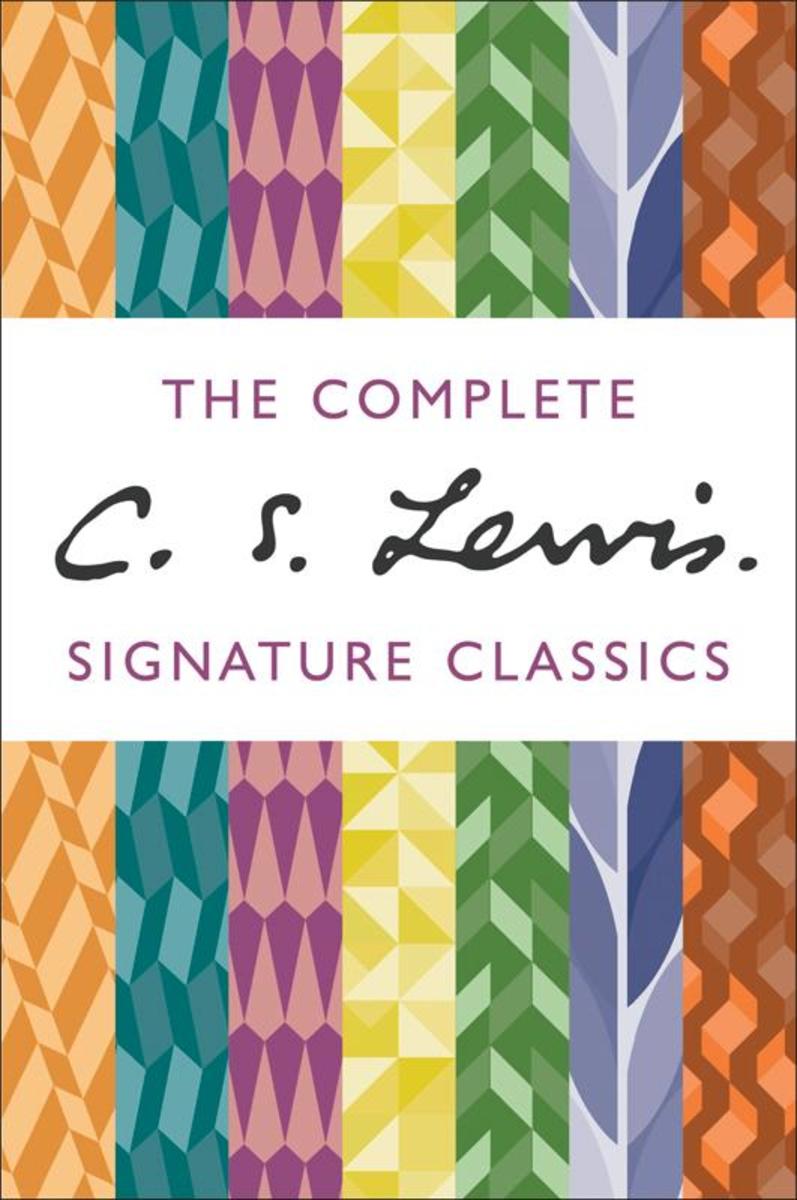
The Complete C. S. Lewis Signature Classics
¥502.27
For centuries people have been tormented by one question above all – ‘If God is good and all-powerful, why does he allow his creatures to suffer pain?’ And what of the suffering of animals, who neither deserve pain nor can be improved by it? The greatest Christian thinker of our time sets out to disentangle this knotty issue. With his signature wealth of compassion and insight, C.S. Lewis offers answers to these crucial questions and shares his hope and wisdom to help heal a world hungry for a true understanding of human nature.

The Peregrine: The Hill of Summer & Diaries: The Complete Works of J. A. Baker
¥73.58
Reissue of J. A. Baker’s extraordinary classic of British nature writing Despite the association of peregrines with the wild, outer reaches of the British Isles, The Peregrine is set on the flat marshes of the Essex coast, where J A Baker spent a long winter looking and writing about the visitors from the uplands – peregrines that spend the winter hunting the huge flocks of pigeons and waders that share the desolate landscape with them. Including original diaries from which The Peregrine was written and its companion volume The Hill of Summer, this is a beautiful compendium of lyrical nature writing at its absolute best. Such luminaries as Richard Mabey, Robert Macfarlane, Ted Hughes and Andrew Motion have cited this as one of the most important books in 20th Century nature writing, and the bestselling author Mark Cocker has provided an introduction on the importance of Baker, his writings and the diaries – creating the essential volume of Baker's writings. Since the hardback was published in 2010, papers, maps, and letters have come to light which in turn provide a little more background into J A Baker’s history. Contemporaries – particularly from while he was at school in Chelmsford – have kindly provided insights, remembering a school friend who clearly made an impact on his generation. In the longer term, there is hope of an archive of these papers being established, but in the meantime, and with the arrival of this paperback edition, there is a chance to reveal a little more of what has been learned. Among fragments of letters to Baker was one from a reader who praised a piece that Baker had written in RSPB Birds magazine in 1971. Apart from a paper on peregrines which Baker wrote for the Essex Bird Report, this article – entitled On the Essex Coast – appears to be his only other published piece of writing, and, with the kind agreement of the RSPB, it has been included in this updated new paperback edition of Baker’s astounding work.

Birds of New Zealand, Hawaii, Central and West Pacific (Collins Field Guide)
¥206.30
The essential guide to identifying every species of bird you may see in this area, for both tourists and wildlife enthusiasts. Featuring over 750 species, Birds of New Zealand, Hawaii, Central and West Pacific is the only field guide to illustrate and describe every species of bird you may see in the area, from Australia, New Zealand and New Guinea to Melanesia, Micronesia, and Polynesia. ? Text gives information on key identification features, habitat, and songs and calls ? All plumages for each species are illustrated, including those of males, females and juveniles The stunning 95 colour plates appear opposite their relevant text for quick and easy reference. Distribution maps are included, showing where each species can be found and how common it is, to further aid identification. This comprehensive and highly portable guide is a must for all birdwatchers visiting the region.

Spitfire Women of World War II
¥68.67
This is the incredible true story of a wartime sisterhood of women pilots: a group of courageous pioneers who took exceptional risks to fly Spitfires, Hurricanes and Lancasters to the frontlines of World War II. The women pilots of Air Transport Auxiliary came from all countries and backgrounds. Although not allowed into combat, they demonstrated astonishing bravery in their supporting role: flying unarmed, without radios or instruments, and at the mercy of the weather and enemy aircraft, they delivered battle-ready planes to their male counterparts, the fighter pilots of the RAF. The story of these remarkable women pilots – among them Amy Johnson and Lettice Curtis – is a riveting account of women in wartime, and a fitting tribute to their spirit and valour.

Henry: Virtuous Prince
¥80.25
Bestselling royal historian David Starkey’s captivating biography is a radical re-evaluation of Henry VIII, the British monarchy’s most enduring icon. Larger than life in every sense, Henry VIII was Britain’s most absolute monarch – but he was not born to rule. In this brilliantly readable history, David Starkey follows the promising young prince – a Renaissance man of exceptional musical and athletic talent – as he is thrust into the limelight after the death of his elder brother. His subsequent quest for fame was as obsessive as that of any modern celebrity, and his yearning for a male heir drove him into dangerous territory. The culmination of a lifetime’s research, David Starkey’s biography is an unforgettable portrait of the man behind the controversies, the prince turned tyrant who continues to tower over history.

Street Boys
¥73.58
The shocking, powerful true story of the lives of 7 young kids, marred by guns, gangs and violence on one of Britain’s toughest estates. ‘Eight years old. That’s when life went downhill. From eight years old nobody looked after me. I just lived on the streets and made do by myself. There was no one except me and my friends.’ Simon This is the story of 7 young boys who have one thing in common – they grew up in a London street gang. JaJa looks out of his kitchen window and sees drug dealers, pimps and whores. He ends up as a kid leading a street gang. Phat Si comes home from school one day to find his mother gone so he takes to the streets. He’s 8 years old. Ribz's mother sells crack and is sent to prison. He doesn't know who his father is but does know that his dad has an unknown number of children living on the same estate. He’s determined to find some kind of family. Street Boys tells a powerful and important true story of courage, determination and hope – of creating a family from your friends and starting again when the world seems against you.

Fifty Things You Need To Know About British History
¥72.40
What are the 50 key events you need to understand to grasp British history? If you could choose the 50 things that define British history, events of significance not only in themselves, but in their importance to wider themes running through our past, what would they be? Hugh Williams has made that selection, and the result is a fascinating overview of Britain’s past. He refines British history into a series of key themes that represent a crucial strand in our history, and pinpoints the seminal events within those strands - Roots, from the Roman invasion to Britain’s entry into the Common Market; Fight, Fight and Fight Again, from the Battle of Agincourt to the Falklands War; The Pursuit of Liberty, from the Magna Carta through the Glorious Revolution to the foundation of the NHS; Home and Abroad, from Sir Francis Drake and Clive of India to the arrival of the SS Empire Windrush; and All Change, from Chaucer and the English language to the invention of the jet engine. With great clarity, simplicity and a zest for the marvellous stories that underpin many of these events, Hugh Williams explains the linkage between each one and its importance in the progress of British history as a whole. Along the way, he has some fascinating tales to tell, making this a highly enjoyable read as well as a perceptive insight into our shared past, and vital for anyone who wants quickly and enjoyably to grasp the essential facts about Britain’s history.

Chocolate Wars: From Cadbury to Kraft
¥80.25
The delicious true story of the early chocolate pioneers by the award-winning writer, and direct descendant of the famous chocolate dynasty, Deborah Cadbury In 'Chocolate Wars' bestselling historian and award-winning documentary maker Deborah Cadbury takes a journey into her own family history to uncover the rivalries that have driven 250 years of chocolate empire-building. Beginning with an account of John Cadbury, who founded the first Cadbury's coffee and chocolate shop in Birmingham in 1824, 'Chocolate Wars' goes on to chart the astonishing transformation of the company's fortunes under his grandson George. But while the Cadbury dynasty is the fulcrum of the narrative, this is also the story of their Quaker rivals, the Frys and Rowntrees, and their European competitors, the Nestles, Suchards and Lindts. These rivalries drove the formation of the huge chocolate conglomorates that still straddle the corporate world today, and have first call on our collective sweet tooth. This is narrative history at its most absorbing, peopled by wonderfully colourful characters - the true story of the chocolate pioneers, the visions and ideals that inspired them and the mouth-watering concoctions they created.
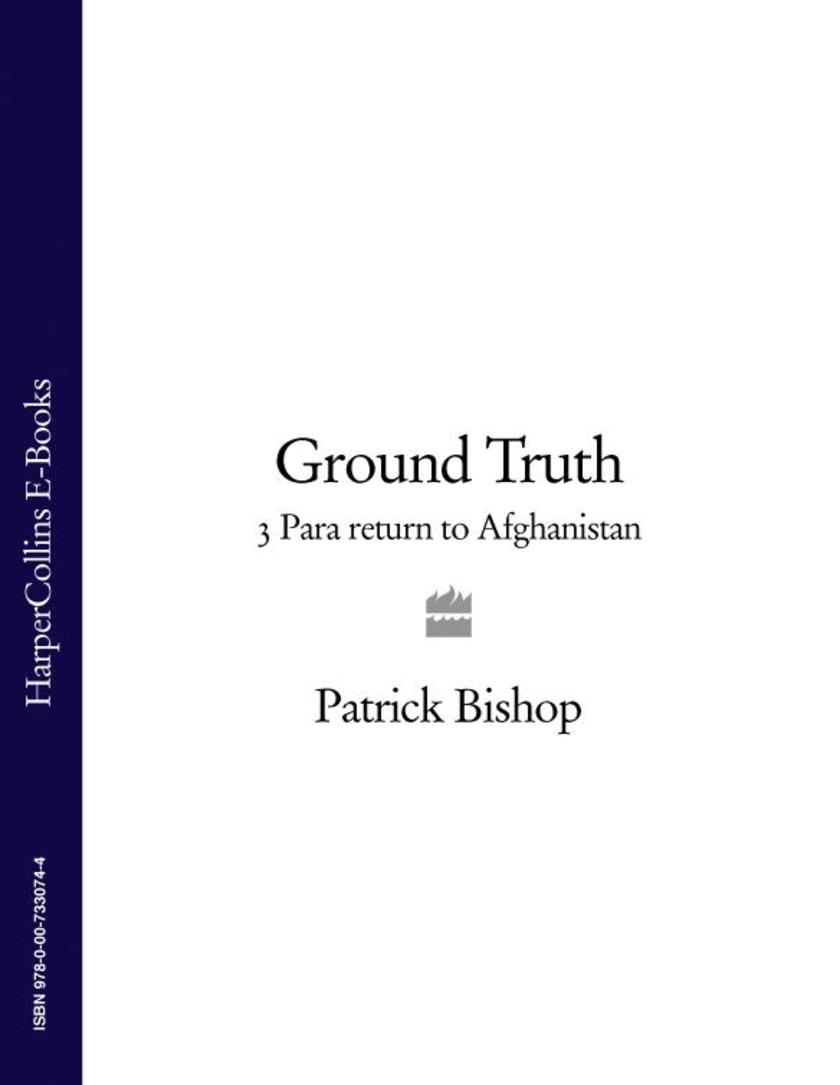
Ground Truth: 3 Para Return to Afghanistan
¥45.62
Afghanistan, 2008. After their eighteen-month epic tour of Helmand Province, the troops of 3 Para are back. This time, the weight of experience weighs heavily on their shoulders. In April 2006 the elite 3 Para Battle Group was despatched to Helmand Province, Afghanistan, on a tour that has become a legend. All that summer the Paras were subjected to relentless Taliban attacks in one of the most gruelling campaigns fought by British troops in modern times. Two years later the Paras are back in the pounding heat of the Afghanistan front lines. The conflict has changed. The enemy has been forced to adopt new weaponry and tactics. But how much progress are we really making in the war against the insurgents? And is there an end in sight? In this searing account of 3 Para’s return, bestselling author Patrick Bishop combines gripping, first-person accounts of front-line action with an unflinching look at the hard realities of our involvement in Afghanistan. Writing from a position of exclusive access alongside the Paras, he reveals the ‘ground truth’ of the mission our soldiers have been given. It’s a sombre picture. But shining out from it are stories of courage, comradeship and humour, as well as a gripping account of an epic humanitarian operation through Taliban-infested country to deliver a vitally needed turbine to the Kajaki Dam. Frank, action-packed and absorbing, ‘Ground Truth’ is a timely and important book that will set the agenda for discussion of the Afghan conflict for years to come.
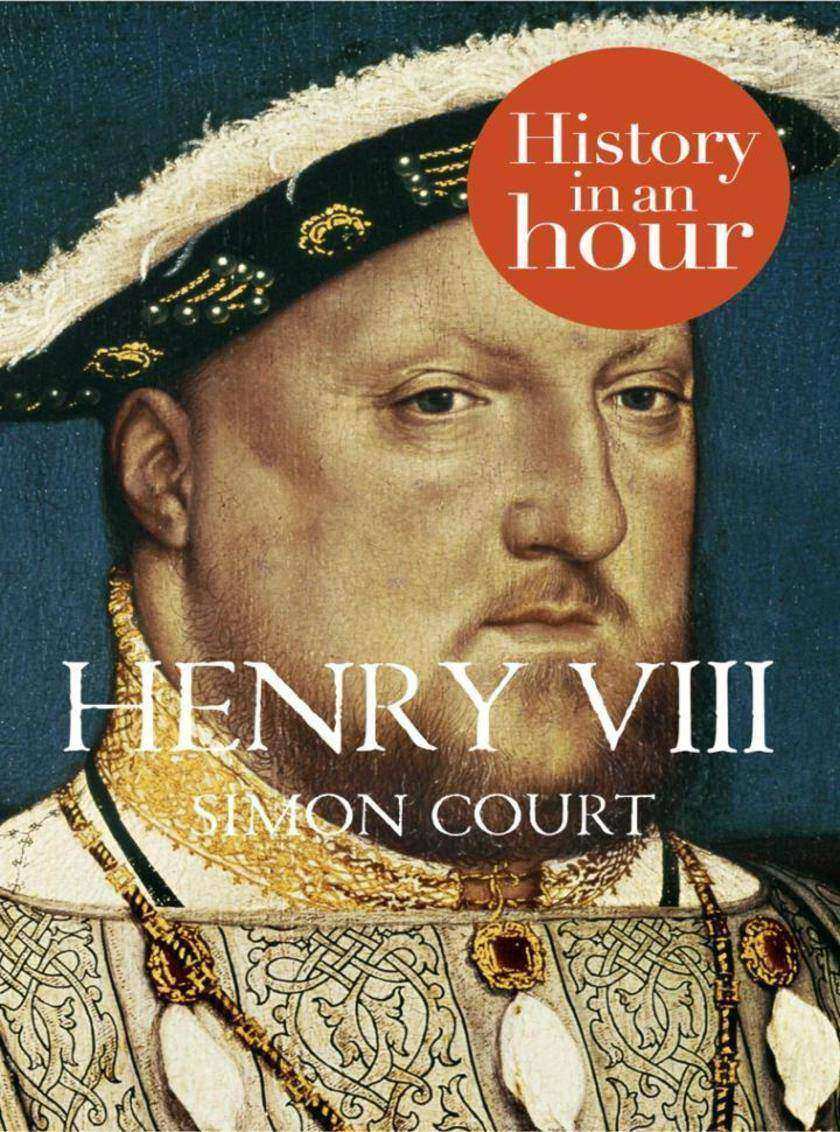
Henry VIII: History in an Hour
¥18.05
Love history? Know your stuff with History in an Hour. King of England, claimant King of France, Lord – and later King – of Ireland, Supreme Head of the Church of England and, perhaps most famously, six times a husband, Henry VIII is England’s most notorious monarch. Succeeding his father, Henry VII, he allied with the Holy Roman Emperor and began his many obsessive invasions of France. Meanwhile the handsome, worldly king embarked on his famous quests for a suitable wife and heir. With marriage to Anne Boleyn came the separation of the Church of England from the Roman Catholic Church, Reformation and the Dissolution of the Monasteries. From his childhood to his later years and famed appetites for food, sex and validation, ‘Henry VIII: History in an Hour’ describes the life of a man whose desires and determination changed England and the world. Love history? Know your stuff with History in an Hour…
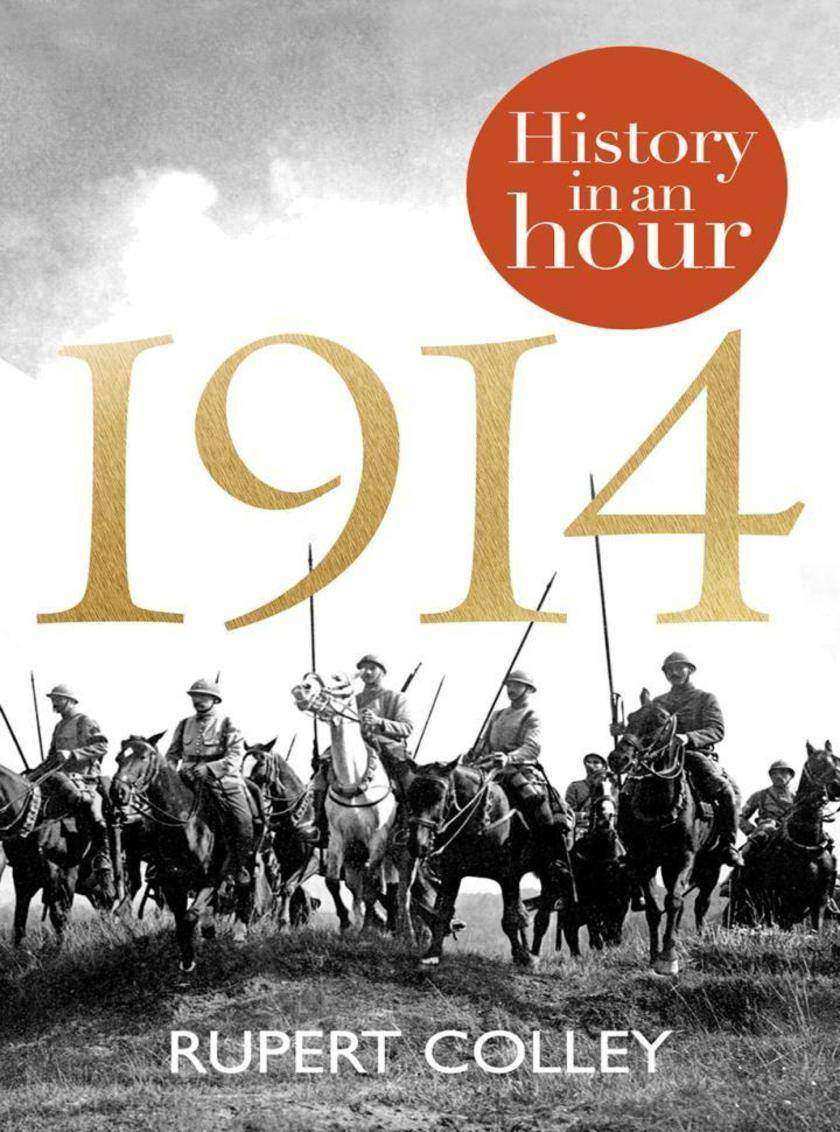
1914: History in an Hour
¥14.81
Love history? Know your stuff with History in an Hour. In 1914 the world changed. Europe’s great powers were dragged, one by one, into a war by Serbian conflict which affected very few of them directly. At least it would resemble the short sharp battles of the previous century, many thought – fought with military bands, horsemen, and swift victories. But 1914 proved to be different, a watershed, as old notions of war were trampled in the mud. ‘1914: History in an Hour’ is the indispensable overview of the year that marked the end of the Belle ?poque and the shocking birth of modern mechanised warfare. It became a war of unimaginable horror, fought with terrifying new weapons that produced death on an industrial scale, a war that involved so many nations and reached into the fabric of their societies. 1914 shaped the First World War, and the years beyond.

A Brief History of Crisps
¥22.66
A tasty trip down memory lane, perfect for crisp fanatics. A colourful, witty and irreverent encyclopedia of all the crisps of your youth. The authors have been given access to the archives, factories and warehouses of some of the leading crisp manufacturers in the country and have delivered a book that is packed full of fascinating historical research… … and lots and lots of crisps. A ‘Brief History of Crisps’ originally featured in ‘The Great British Tuck Shop’, the ultimate book of sweetie nostalgia.

Birds of India (Collins Field Guide)
¥221.02
This comprehensive new field guide is an excellent addition to the world-renowned series – the ultimate reference book for travelling birdwatchers. Every species of bird you might encounter in Pakistan, India, Nepal, Bhutan, Bangladesh, Sri Lanka, the Andaman Islands, the Nicobar Islands and the Maldives is featured, apart from non-established introductions. Beautiful artwork depicts their breeding plumage, and non-breeding plumage when it differs significantly. The accompanying text concentrates on the specific characteristics and appearance of each species that allow identification in the field, including voice and distribution maps.
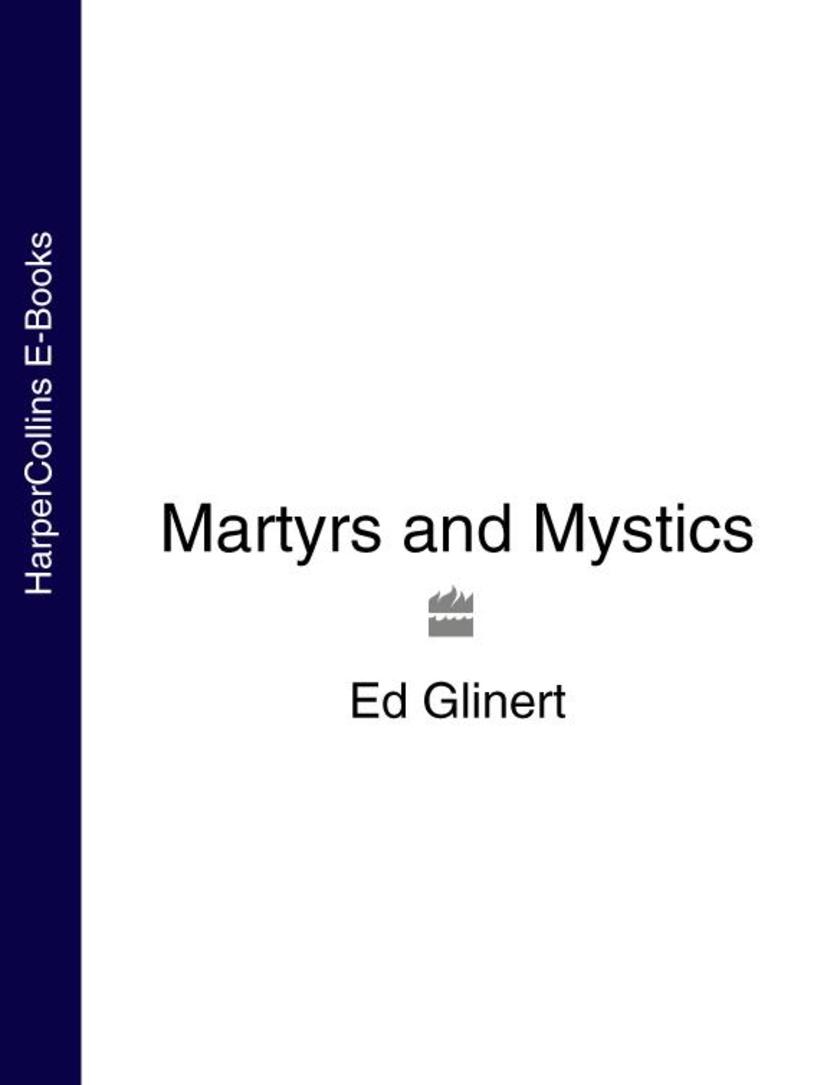
Martyrs and Mystics
¥115.56
A guided tour of Britain’s spiritual heritage Did Joseph of Arimathea really bring the holy grail to Glastonbury? Why do many conspicracy theorists believe architects such as Wren and Hawksmoore secretly built London according to principles from the Old Testament? What were the true reasons for the executions of martyrs such as Ridley, Wycliffe and Cranmer? All these intriguing questions, and many more, are answered in Ed Glinert’s unusual and fascinating new book. Glinert travels round Britain unearthing the most interesting spiritual characters and stories from over 2,000 years of British history. From martyrs to mystics, millenialists to malingerers, and ‘messiahs’ magicians magicians, Britain’s turbulent religious history has thrown up a wealth of intriguing characters. Ed Glinert tells their stories in readable, bitesized chunks.

Life of a Chalkstream
¥73.58
This delightful book records a year in the life of an essentially English waterscape, one that is home to a vast array of wildlife and natural habitat of the keen angler – the chalkstream. Simon Cooper grew up in Hampshire, where he first fell in love with fly fishing. Only after moving away did he realise how little people knew about the secret world of the chalkstreams. Chalkstreams are nearly exclusive to England, ranging from Dorset to Yorkshire and including the famous River Test in Hampshire. Every river is special in its own right. Life of a Chalkstream is a lyrical and revealing voyage through the yearly cycle of this unique waterway. From the remarkable spectacle of salmon, sea trout and brown trout spawning in winter, to the emergence of water voles in spring and the explosion of mayflies in the early days of summer, the author evocatively describes the natural wonders of the chalkstream. He introduces us to the fascinating diversity of life that inhabits its waters and environs – the fish, the angling community, the plant life and the wildlife. We learn how neglect threatens these inhabitants and why the fight to save the chalkstreams is so vital, not only for fishermen, but for anybody who values the beauty of rural England.

Anji’s Story (Individual stories from WISH YOU WERE HERE!, Book 6)
¥11.77
One of seven touching true stories from Wish You Were Here!, the tale of Butlin’s holiday camps. ‘When I got to the camp I felt as if I’d suddenly walked into Utopia – it was so colourful, so warm, so friendly. There were lights across the roads, there were banners fluttering in the breeze… There seemed to be laughter coming from every building.’ With grey post-WWII skies hanging low over Britain, factories lining the streets and smoke stacks dotting the horizon, there was one way that ordinary families could escape: the ever-cheerful holiday camps of Butlin’s. When Billy Butlin founded his holiday camps in 1936, they were bastions of community spirit and havens of luxury. Here, for one week, wives and mothers were freed from the toil and drudgery of housework, children ran free through the grounds, fathers and husbands hung up their work clothes. Ever-helpful redcoats were on hand all hours of the day, dinner halls ready with plentiful food for old and young alike, bars stocked to quench any level of thirst, ballrooms waiting to be flooded with shiny shoes, rustling dresses and peals of laughter. And, as the sun went down on another exhausting, happy day, a chorus line was ready to sing holidaymakers back to their beds. Rich in period detail and highly evocative, Wish You Were Here! follows the lives of seven of the camps’ key figures through the highs and lows of the holiday season: from redcoats searching for stardom to young families who returned year after year, to pensioners who rediscovered an inner youth. The laughter and tears, the loves and losses, and the fun and friendships that have lasted a lifetime – it's all here. Funny, moving and heartwarming, they are tales of swimming pools and sing-a-longs, Glamorous Grannies and bicycle rides, and of a community spirit that burned brightly in a much-loved British institution.

The Forgotten Soldier (Part 2 of 3)
¥28.45
Bestselling author Charlie Connelly returns with a First World War memoir of his great uncle, Edward Connelly, who was an ordinary boy sent to fight in a war the likes of which the world had never seen. But this is not just his story; it is the story of all the young forgotten soldiers who fought and bravely died for their country The Forgotten Soldier tells the story of Private Edward Connelly, aged 19, killed in the First World War a week before the Armistice and immediately forgotten, even, it seems, by his own family. Edward died on exactly the same day, and as part of the same military offensive, as Wilfred Owen. They died only a few miles apart and yet there cannot be a bigger contrast between their legacies. Edward had been born into poverty in west London on the eve of the twentieth century, had a job washing railway carriages, was con*ed into the army at the age of eighteen and sent to the Western Front from where he would never return. He lies buried miles from home in a small military cemetery on the outskirts of an obscure town close to the French border in western Belgium. No-one has ever visited him. Like thousands of other young boys, Edward’s life and death were forgotten. By delving into and uncovering letters, poems and war diaries to reconstruct his great uncle’s brief life and needless death; Charlie fills in the blanks of Edward’s life with the experiences of similar young men giving a voice to the voiceless. Edward Connelly’s tragic story comes to represent all the young men who went off to the Great War and never came home. This is a book about the unsung heroes, the ordinary men who did their duty with utmost courage, and who deserve to be remembered.

Mr and Mrs John Bates (Downton Abbey Shorts, Book 9)
¥11.77
This richly illustrated short, extracted from the official book The Chronicles of Downton Abbey, focuses on the characters individually, examining their motivations, their actions and the inspirations behind them. Forwarded by Downton Abbey creator Julian Fellowes. Living under the threat of death for some weeks until his reprieve was obtained would have been enormously traumatic for Bates. At least, we must imagine that it was. Bates is a man who has been so opaque and guarded in his emotions that even those closest to him have had to patiently and slowly tease out details about his past. Anna Bates is a rare creature; utterly sure of herself, dependable, sympathetic and steadfastly loyal. Although having a convicted murderer for a husband is not quite every newlywed’s dream, Anna is unwavering in her belief that he is innocent. Anna puts her loyalty to her husband first and foremost, and her love for him could be as dangerous as it is steadfast. Purchase this ebook short and the others in the series to get closer still to the characters at Downton Abbey and to understand more about their social context – from the changing role of the aristocracy to fashion and beauty, life in prison, American Anglophiles, the Suffragette movement and life below stairs in a big country house like Downton. Search for The Chronicles of Downton Abbey to purchase all shorts combined.




 购物车
购物车 个人中心
个人中心



